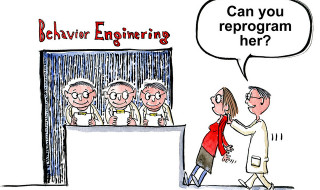For majority of us, a significant amount of time we spent at work is placed on sending and receiving several emails throughout the day. Because we send and receive hundreds of messages a day, some end up making embarrassing or shameful mistakes that can be harmful in the profession. Yes! Some of your corporate emails may send a bad tone to the receiver. If the receiver decides to forward that said email to your boss then, you might lose your job. Prevent that from happening by knowing the 4 Work Emails That Can Cost You Your Job:
1. “I AM CURRENTLY LOOKING FOR ANOTHER JOB!”
Do I even need to explain why this is inappropriate? If you are sick of your current workplace, looking for another job is one thing but admitting it through a work email is another! You might as well have an “I Hate This Place” sign on your chest!
Do not use your corporate or work email to relay this kind of message even to your most trusted colleagues. You may think that if people know you are seeking for another job then, they will do anything to keep you around. Perhaps you are expecting a raise or a promotion…but that rarely happens! Most likely, you are the first candidate in mind during layoffs.
2. “I AM PASSING AN MC TOMORROW.”
This is not a work email that you want to circulate around unless you really feel sick and you cannot make it tomorrow. Although many people have done this before, it is not professional and it sends a message that you are tired of your job. Not only does the company pay for your MC but they also need to cover for you. If the HR gets this email, you will have some explaining to do!
3. “PLEASE DELETE AFTER READING.”
Having a disclaimer like this is a sign that something shady or something highly sensitive is coming next. If someone outside of your circle reads this, you are going to be in big trouble. The truth is, nothing is ever completely deleted. Take Hillary Clinton for example, whose emails to non-government accounts were out in the public because it was maintained on the Federal government’s servers. So, if it is a sensitive matter, use your personal email or meet up your colleague and talk about it in closed doors.
4. “LET’S ALL PARTY TONIGHT!”
We spend most of our time at work so, it comes as no surprise that parties and get-togethers happen all the time. But, this is a personal event that you must organize and send through your personal email. If anything bad happens in the party, evidence might bring down the company too. Unless it is a workplace party, organize your parties via personal Gmail invites or personal Whatsapp conversations.
Oh one more thing! Please avoid sending drunken emails or sending a message that you got really wasted last night using a corporate email. No explanations needed!












